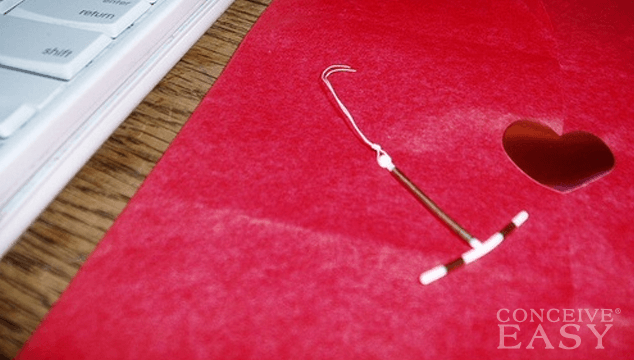Mirena is a brand name for a form of hormonal intrauterine contraception device (IUD). It is an IUD with progesterone (as opposed to copper), and results in reduced or absent menstruation. It can be used to treat women who suffer from very heavy periods (menorrhagia). Claim Your 20 Free Pregnancy Tests – Click Here
For some women, not having a period is a real boon, whist others report feeling less natural and ‘woman-like.’ Either way, this should not prevent you from getting pregnant after the Mirena device has been removed. Mirena is a good birth control method if you aren’t interested in getting pregnant for a few years, and do not want the hassle of taking a pill every day.

Many women have reported getting pregnant immediately after have the Mirena removed, and in general the recovery rate for fertility levels seem higher than with injectable contraceptives such as Depo-Provera. Some women report increased miscarriages after having Mirena removed despite having no problems conceiving and giving birth prior to using Mirena. Although many women have no trouble, you must be aware that it could cause complications.

Many women have reported to waiting six months to a year before their periods returned to a normal schedule, while others have gone upwards of one to two years before regaining fertility. If you are desperate to conceive or have waited over 18 months, it is advisable that you and your partner consult with a fertility doctor. There could be other reasons for your lack of conception.

If you have recently had a Mirena removed, do not be surprised to suffer from a vast array of symptoms that mirror pregnancy and/or are discomforting. These include pain, bloating, nausea, sore breasts, mood swings, periods which are not regular, and spotting. This is often just your body readjusting to your new hormone balance.

It is possible to conceive whilst using this device. In cases where this occurs it is advised that the device is removed. This tends to abort the baby. Most pregnancies that occur are ectopic – this means that the embryo grows in the wrong place (usually the fallopian tube). This can rupture and cause infertility issues. If you want to get pregnant after Mirena, know this is a risk.

If you are thinking about using Mirena then you will need to consider the possible side effects. This form of contraception has been known to cause pelvic floor inflammatory disease (PID) usually through the insertion process and tends to occur within the first twenty days, but has been known to happen later.
This can cause damage to the fallopian tubes, which can later lead to ectopic pregnancy, infertility, and at the far end of the spectrum, complete infertility and death. Less than 10% of women have adverse effects; when they do occur the symptoms involve vaginal and uterine bleeding, missed periods, irregular bleeding and spotting not due to periods, pain and ovarian cysts. Around 1% of all users will get ovarian cysts while using Mirena.










Comments